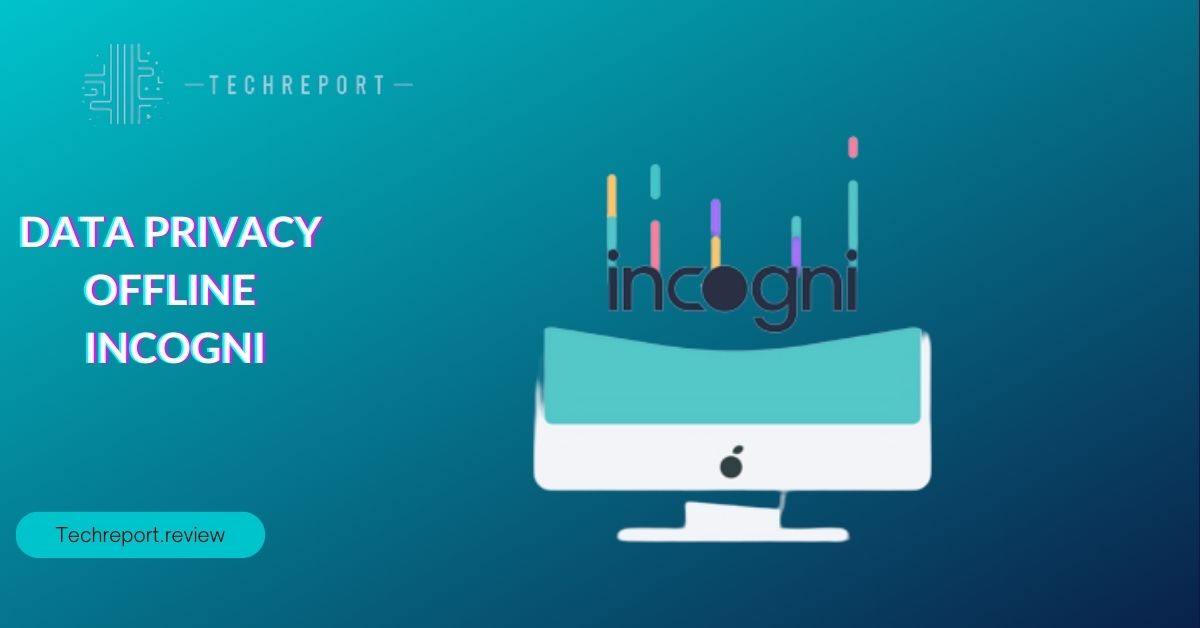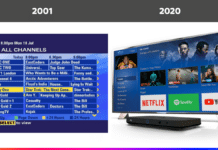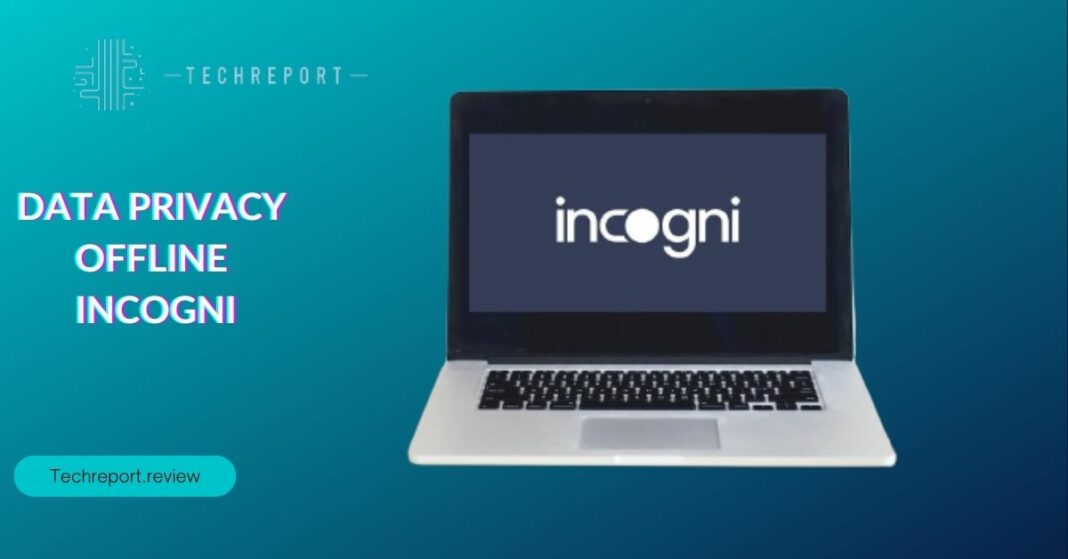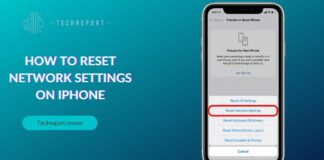In the ever-evolving digital landscape, the significance of data privacy has reached unprecedented heights. In a world where our personal lives are seamlessly intertwined with technology, the protection of our sensitive information has become a paramount concern. The concept of data privacy encompasses the safeguarding of personal data from unauthorized access, usage, and dissemination, ensuring that individuals retain control over their own information.
Data privacy is not confined to the boundaries of the online realm alone. While the internet undoubtedly serves as a major conduit for data collection, we are constantly generating and sharing personal information in our offline interactions as well. From swiping loyalty cards at our favorite stores to signing up for health services, our everyday actions contribute to the creation of extensive data footprints that extend beyond the digital sphere.
Enter Incogni, a guardian of personal privacy that transcends the boundaries of the virtual world. In recognizing that offline data collection can pose equally potent threats to privacy, Incogni takes a holistic approach to data protection. Incogni understands that our digital lives are seamlessly integrated with our physical experiences, and hence, addresses not only the digital aspects but also the real-world sources of data vulnerability.
Incogni’s mission is to ensure that users are shielded from the invasive collection and potential misuse of their personal information, whether it occurs online or offline. By extending its services beyond the virtual landscape, Incogni effectively tackles the less explored yet equally significant challenges to data privacy. In a world where data breaches and privacy infringements seem almost inevitable, Incogni stands as a staunch advocate for the protection of personal information in all spheres of life.
Through the following exploration, we will delve into the multifaceted realm of offline data collection, understanding its implications for individual privacy. We will then uncover how Incogni pioneers the way in mitigating these offline risks, thereby reinforcing its commitment to empowering individuals with a comprehensive shield against data exposure.
If you value your online privacy and data security, Incogni is your trusted ally. Incogni empowers users to exercise their right to privacy by helping them reclaim control over their personal information. In an age where data protection is paramount, Incogni offers a subscription-based service that makes it easier than ever to remove your data from the clutches of data brokers. Your privacy matters and Incogni is here to ensure it remains in your hands.
The Multifaceted World of Data Collection

In the modern age, data collection has transcended the confines of the virtual world and has seamlessly integrated itself into our daily lives. While we often associate data privacy concerns with our online activities, the truth is that data is being amassed offline as well, through a myriad of channels that might not immediately come to mind.
Picture this: you’re shopping at your favorite retail store, and the cashier asks if you’d like to sign up for their loyalty program. You provide your name, phone number, and perhaps even your address, all in exchange for promises of exclusive discounts and personalized offers. What might appear as an innocuous transaction is, in fact, a prime example of offline data collection. Retailers, through loyalty programs, are gathering crucial details about your shopping habits, preferences, and demographics, which can then be used to tailor marketing strategies.
But it doesn’t stop there. Surveys and contests, whether at a local event or a community fair, also serve as conduits for data collection. Providing your contact details to enter a raffle or participating in a survey may seem like small gestures, but they contribute to the intricate tapestry of personal data that organizations use to understand consumer behavior.
Consider the healthcare sector: a realm that deals with some of our most sensitive and private information. When you visit a healthcare provider, you divulge details about your medical history, current health concerns, and potentially even your insurance information. This information, essential for providing you with proper care, also represents a treasure trove of data that can be valuable to marketers, researchers, and even insurance companies.
Public records, too, play a pivotal role in offline data collection. Government agencies and institutions maintain records of various aspects of our lives, ranging from property ownership and birth certificates to legal proceedings and licenses. These records, while serving essential administrative functions, also contribute to the growing reservoir of personal data that can potentially be accessed by third parties.
From the seemingly innocuous act of signing up for a loyalty program to the more intricate sharing of healthcare information, offline data collection operates as an intricate network, constantly gathering information that forms the basis for various decisions and strategies. In the subsequent sections, we will delve deeper into specific scenarios where offline data collection occurs and how Incogni’s proactive approach steps in to address these offline privacy concerns.
The Offline Data Privacy Challenge
As the boundaries between the digital and physical worlds continue to blur, the implications of offline data collection on individual privacy have become increasingly significant. The data amassed through seemingly routine interactions holds the power to shape a comprehensive profile of who we are, what we do, and what we might be inclined to do in the future.
The data collected offline, when combined with online information, can lead to the creation of intricate profiles that paint a remarkably detailed picture of our lives. Retailers analyze our loyalty program data to understand our shopping preferences, helping them predict the products we are likely to purchase. Healthcare providers gather medical histories to offer better treatment options, but these records could also be exploited to target individuals with specific medical needs or conditions.
The amalgamation of these data points can enable the creation of shadow profiles that not only reveal our basic demographic information but also our habits, interests, and vulnerabilities. This data-rich mosaic is highly attractive to advertisers, marketers, and even those with malicious intent.
The potential risks associated with offline data collection are manifold. Identity theft, for instance, becomes a more palpable threat when comprehensive profiles are pieced together. The amalgamation of personal and financial information—often collected offline—can result in unauthorized access to bank accounts, credit fraud, and even the impersonation of individuals.
Furthermore, the practice of targeted marketing relies heavily on the detailed insights gathered through data collection. Advertisers can tailor their messages to resonate with specific demographics or interests, effectively blurring the lines between personal preferences and manipulative tactics. This can lead to individuals being exposed to products, services, and content that may not genuinely align with their desires.
Perhaps even more concerning is the potential misuse of personal data for social engineering or political manipulation. The creation of comprehensive profiles enables not only commercial targeting but also the molding of individual opinions and behaviors. The merging of offline and online data can allow entities to predict political inclinations, religious beliefs, and societal affiliations, potentially leading to the manipulation of people’s perspectives.
In a world where data privacy is becoming increasingly elusive, the challenge lies in striking a balance between the benefits of personalized experiences and the protection of individual privacy. Incogni recognizes these multifaceted challenges and extends its commitment to safeguarding privacy beyond the digital realm. The following sections will delve into how Incogni’s proactive approach takes on the task of mitigating these risks and fortifying individuals against offline data privacy challenges.
Incogni’s Approach to Offline Privacy
In the realm of data protection, Incogni emerges as a beacon of comprehensive privacy preservation, addressing not only the digital frontier but also extending its reach into the intricacies of offline data collection. Recognizing that our lives are lived both online and offline, Incogni takes a holistic approach to safeguarding individual privacy.
Beyond the realm of online data removal, where Incogni has already proven its prowess, the service goes above and beyond by acknowledging the substantial role of offline data exposure. This involves a proactive stance, one that doesn’t merely react to privacy breaches but actively anticipates and prevents them.
Central to Incogni’s strategy is the concept of monitoring and managing offline data exposure. It recognizes that the data we share offline can be just as vulnerable to misuse as the data we share online. Incogni takes on the role of a vigilant guardian, constantly scanning for potential sources of data leaks in the offline world.
Moreover, Incogni empowers users to take charge of their data footprint even when they’re not in the digital realm. This is achieved by minimizing users’ offline data footprint, ensuring that information shared through loyalty programs, surveys, and offline interactions is controlled and limited to the extent possible. By facilitating opt-outs from these data-sharing practices, Incogni ensures that users maintain agency over their personal information.
Incogni’s approach to offline privacy transcends the boundaries of technological platforms and penetrates into the very heart of how we interact with the world around us. The service acknowledges that the steps we take in the real world—be it shopping, participating in events, or seeking healthcare—have far-reaching implications for our privacy. By taking a proactive and preventative stance, Incogni underscores its commitment to preserving the sanctity of personal information.
In the following sections, we will delve into specific scenarios where Incogni’s role shines brightly in minimizing offline data exposure. We will explore how Incogni tackles real-world challenges and empowers users to navigate the multifaceted landscape of data privacy, ensuring their information remains theirs to control, both online and offline.
Scenarios of Offline Data Exposure
In the intricate tapestry of our daily lives, the ways in which we unknowingly share our personal data offline are numerous and diverse. These scenarios span from seemingly innocuous interactions to critical decisions that impact our well-being. Here, we delve into specific instances where Incogni’s intervention serves as a shield against offline data exposure, preserving our privacy in a world that’s constantly collecting information.
Loyalty Programs:
Retail loyalty programs, designed to reward customer loyalty, often require individuals to provide their personal details in exchange for exclusive discounts and offers. Unbeknownst to many, these programs serve as fertile ground for data collection, as every purchase and preference is meticulously recorded. Incogni steps into this arena by enabling users to opt-out of such programs. This action limits the data collected and minimizes the chances of personal information being used for targeted marketing or other unintended purposes. Incogni empowers users to enjoy the benefits of loyalty programs without compromising their privacy.
Public Records:
Certain personal information inevitably finds its way into public records, making it accessible to a wide range of entities. While these records serve administrative and legal functions, they also expose individuals to privacy risks. Incogni steps in by assisting users in minimizing their exposure through public records. By facilitating the removal of unnecessary personal data or limiting its accessibility, Incogni ensures that sensitive information doesn’t become readily available to anyone with a curious eye. This proactive approach protects individuals from potential misuse of public records data.
Healthcare Providers:
Healthcare is a realm where privacy is paramount, yet the sharing of medical records and personal data between providers can expose individuals to vulnerabilities. Incogni plays a crucial role in this domain by empowering users to take control of their healthcare data. Through its services, users can limit the extent to which their medical records are shared among different healthcare providers. This proactive measure ensures that sensitive medical information remains confined to those who genuinely require it for medical purposes, reducing the risk of misuse or unauthorized access.
In each of these scenarios, Incogni demonstrates its commitment to preserving users’ privacy beyond the digital realm. By addressing offline data exposure, Incogni fosters a holistic approach to data protection, ensuring that individuals have agency over their personal information, regardless of where it’s shared. In the subsequent sections, we’ll explore Incogni’s strategies for data removal and the ongoing effort to maintain offline data privacy in a dynamic and evolving world.
Empowering Users with Knowledge
In the era of digital connectivity, knowledge is the most potent weapon in the battle for privacy. Awareness of the intricacies of data collection, both online and offline, is the first step towards preserving individual agency over personal information. Incogni recognizes the significance of empowering users with this knowledge and takes proactive steps to educate and inform its user base.
Importance of User Awareness:
Understanding the implications of offline data collection is paramount to safeguarding one’s privacy. The more users comprehend the reach and depth of data exposure, the better equipped they become to take informed decisions about sharing their information. Incogni underscores the fact that every transaction, survey, or interaction potentially contributes to the data trail that others can follow. This awareness prompts users to exercise caution and make choices that align with their privacy preferences.
Educating Users about Offline Data Exposure:
Incogni serves as a beacon of enlightenment in the complex landscape of data privacy. The service actively educates users about potential offline data exposure risks, illuminating the paths through which their information might be accessed and exploited. By shedding light on how loyalty programs, public records, and healthcare providers can inadvertently reveal personal data, Incogni fosters a sense of vigilance among its users.
Educational Resources:
To further fortify user awareness, Incogni provides a range of educational resources that empower users to become more proactive in protecting their data. Informative blog posts dissect the nuances of offline data collection, offering insights into its intricacies. Regular newsletters keep users informed about evolving privacy trends, potential risks, and best practices for maintaining data security. These resources not only enhance user knowledge but also serve as a continuous reminder of the value of privacy.
In the ever-changing landscape of data privacy, Incogni stands as a reliable source of enlightenment, ensuring that its users are well-equipped to navigate the complex interplay between their personal information and the world around them. By sharing knowledge, offering insights, and fostering a sense of empowerment, Incogni cements its commitment to preserving user agency over data, both online and offline. As we delve into the mechanisms of Incogni’s data removal process, it becomes evident that this commitment extends far beyond theory, actively shaping the data privacy journey of its users.
In Crux
As we conclude this exploration into the multifaceted realm of offline data privacy, it becomes evident that the preservation of personal information transcends the boundaries of the virtual world. Our interactions, decisions, and actions in the offline sphere contribute significantly to the intricate web of data that defines us. In an era where data breaches and privacy infringements have become all too common, understanding the significance of safeguarding both online and offline data has never been more crucial.
Throughout this journey, we’ve uncovered the various scenarios where offline data exposure occurs—be it through loyalty programs, public records, or interactions with healthcare providers. The implications of this exposure are far-reaching, from targeted marketing to potential identity theft and even the manipulation of personal opinions and beliefs.
Amidst these challenges, Incogni emerges as a beacon of proactive protection, extending its commitment beyond the virtual horizon. Incogni’s multifaceted approach acknowledges the power of monitoring and managing offline data exposure, empowering users to regain control over their personal information even in the real world. By assisting users in minimizing their offline data footprint, Incogni provides a shield against the unintended consequences of information sharing.
In a world where the value of data has skyrocketed, Incogni’s mission is not only to address the immediate threats but also to empower users with knowledge. By educating users about potential offline data exposure risks and providing resources such as informative blog posts and newsletters, Incogni equips its users with the tools needed to navigate the intricacies of data privacy confidently.
In the grand tapestry of our digital existence, Incogni’s role is crystal clear: it stands as a guardian of privacy, ensuring that users can navigate the world of data collection with confidence and control. As we close this chapter, we invite you to take action to protect your offline data and explore the services that Incogni offers. Your data, whether in the online or offline realm, deserves to be safeguarded, and Incogni is here to guide you on this journey towards reclaiming your privacy. Embrace the power of knowledge, take control of your data, and embark on a path to a more secure digital future.
How much did you like our detailed Guarding Beyond the Screen: Data Privacy Offline Incogni. Please share these Blogs with your friends on social media.
Related Blogs
FAQs about Incogni’s Offline Data Armor
How does Incogni extend its services beyond online privacy?
While online data removal is a critical aspect, Incogni recognizes that offline data exposure is equally significant. It actively monitors and manages offline data collection scenarios, such as loyalty programs, public records, and interactions with healthcare providers, to help users minimize their offline data footprint.
What's the significance of user awareness about offline data collection?
Awareness is key to maintaining data privacy. Understanding how data is collected offline empowers individuals to make informed decisions about sharing their information. Incogni emphasizes this awareness, encouraging users to exercise caution in their offline interactions.
How does Incogni educate users about potential offline data exposure risks?
Incogni believes in equipping users with knowledge. It educates users through informative blog posts, newsletters, and other resources. By shedding light on scenarios where offline data exposure occurs, Incogni empowers users to recognize potential risks and take proactive steps to protect their privacy.
Can Incogni help users with loyalty program data exposure?
Absolutely. Retail loyalty programs often collect personal data for targeted marketing. Incogni offers users the option to opt-out of such programs, limiting data collection and reducing the chances of personal information being misused.
How does Incogni handle public records and privacy?
Public records can expose sensitive information to a wide audience. Incogni assists users in minimizing their exposure through public records. By facilitating the removal of unnecessary personal data or restricting its accessibility, Incogni helps protect individuals from potential misuse.
What's Incogni's role in safeguarding healthcare data?
Incogni acknowledges the sensitivity of healthcare data. It allows users to control the sharing of medical records among healthcare providers. By limiting the extent of sharing, Incogni ensures that sensitive medical information is only accessible to those who genuinely need it.
What resources does Incogni provide for user education?
Incogni offers informative blog posts that dissect the complexities of offline data collection, newsletters that keep users informed about evolving privacy trends, and best practices for data security. These resources not only enhance user knowledge but also serve as constant reminders of the importance of privacy.
Why is minimizing offline data footprint important?
Minimizing offline data footprint is crucial to prevent the creation of detailed profiles that can be exploited for targeted marketing, identity theft, or manipulation. Incogni's proactive approach empowers users to maintain control over the information they share in both online and offline interactions.
How can users take action to protect their offline data?
Users can take the first step by understanding how offline data collection occurs and the potential risks involved. Exploring Incogni's services empowers users to actively manage their data exposure. By opting out of loyalty programs, limiting public record information, and controlling healthcare data sharing, users can protect their offline data and enhance their overall privacy.
























